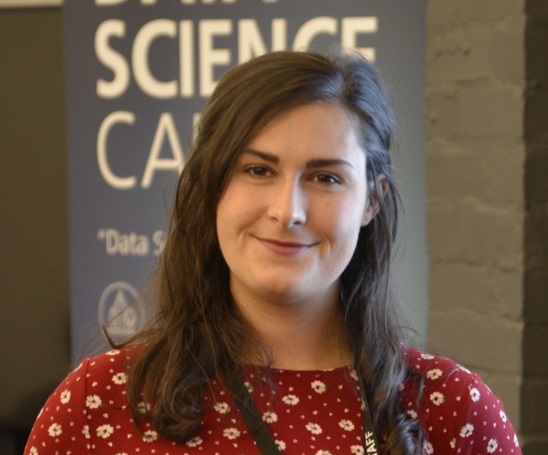Increased demand in the data science job market

Every day our digital footprint is growing through simple activities like shopping and banking. The need for better use of data is increasing, meaning nearly every industry is seeking data science skills.
New research from the Royal Society shows the increased demand for data science and advanced analytics skills in the job market and highlights case studies and options to increase data science skills and capability across the UK.
The Campus welcomes this report, and it’s excellent to see many of the areas of action line-up with our work programme to build data science capability for the UK. The Royal Society’s report published this week – Dynamics of data science skills – calls for action in key areas for the UK to maintain this position, and highlights the Campus as a model for others to follow in developing and advancing data science skills and nurturing talent.
Developing foundational knowledge and skills
We recently launched a degree level apprenticeship in data science on behalf of the public and private sectors, with the first apprentices arriving a few weeks ago. This follows the success of our Level 4 (Diploma) Data Analytics apprenticeships

Recent graduates Charlotte O’Brien – nominated for the VQ Wales Higher Learner of the Year award – and Alexis Fernquest – recently securing a second promotion in ONS – have seen further successes in the last few weeks.
In a case study for the report, Alexis said:
“I started with a degree in economics and then went on to a graduate scheme in a small private company that was selling technology. I was there for a couple of months before I joined a larger organisation.
Then an opportunity came up in the Office for National Statistics to get involved in a data analytics apprenticeship. It was the first of its kind in the UK. They were promising a huge amount of training involving different languages and coding. It was exactly what I was looking for. The apprenticeship officially lasts two years but I completed it ahead of that. I was made permanent and then promoted to data scientist.“
Our recent symposium showed the impact of our MSc in Data Analytics for Government (MDataGov), which aims to build data science capability across government by equipping civil servants with key skills required from a modern government data analyst. We now have more than 120 home and international students through our partner universities, stretching across the public sector.
Advancing professional skills and nurturing talent
The Royal Society report also shows the importance of our extensive partnerships programme, which is helping us to develop, research, innovate, and improve knowledge and skills.
Our partnership with the Alan Turing Institute is helping to advance ground-breaking research in economic data science, and have further strengthened our academic collaborations in 2019 through working with ESPRC and UKRI Centres for Doctoral Training Centres in AI, Statistics and Data Science.
We are also providing technical support and resource to deliver this summer’s Data Science for Social Good (DSSG), the University of Chicago’s summer fellowship programme which has trained over 200 aspiring data scientists across the globe to work on data mining, machine learning, big data and data science projects with social impact.
Enabling movement and sharing of talent
As well as building capability, we are involved in several collaborative projects with cross-sector universities and industry. Our work with Barclays illustrated how the rich data held by partners outside government can improve our understanding of the UK’s economy – with our Faster Indicators project now a monthly research output in this area. We’ve also exchanged skills with secondees spending time with the Campus and Barclays respectively.
In academia, we recently welcomed Professor Jackie Carter from Manchester University to the Campus as an academic secondee, helping to develop proposals from our Public Sector Data Science Audit.
The Royal Society’s report highlights a clear need for collaborative, sustainable mechanisms to develop data talent in academia, and the charity, private and public sectors, and to allow data scientists to move across these sectors.
Campus Managing Director Tom Smith, part of the working group for this report, said:
“One of the things that I have learned over the years is the importance of developing strong partnerships with people outside the organisation that you work with. In the public sector this is critical to delivery, as there are often many groups involved in any piece of work. This comes down to understanding what the missions and values of other organisations that you might be collaborating, competing or partnering with are and how they align with yours”.
Our recent two-year review further highlights our progress made in this area in a short space of time, but we look forward to continuing with our valuable partnerships and creating more in the future to build data science skills across sectors.